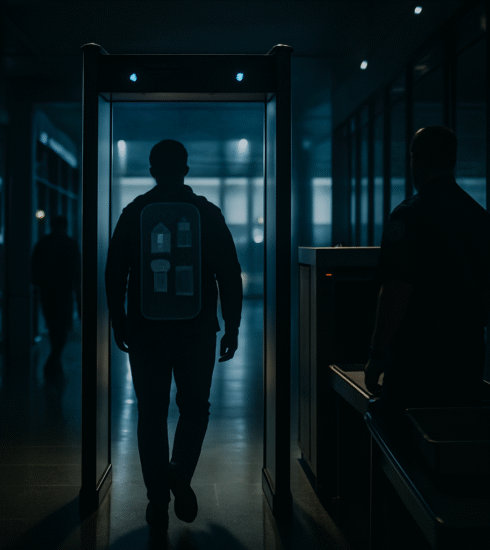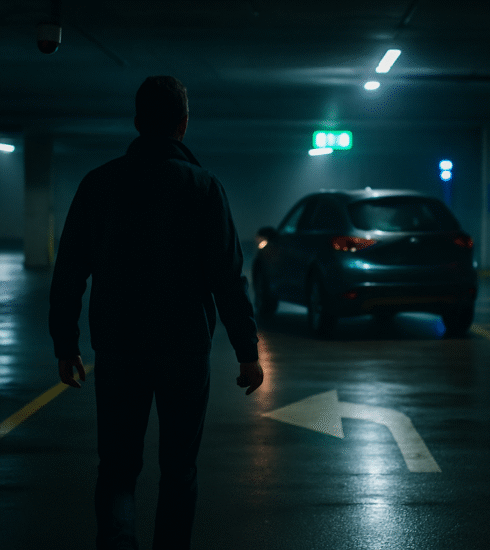Hotel Room Security: Noise, Light, And Tools
A hotel room is a temporary sanctuary, a space you must quickly assess and secure upon arrival. The standard door lock and chain are insufficient for a comprehensive security posture. You must consider the entire environment, from audible threats to visual intrusions and the tools required to verify your safety. This process is not about paranoia but about establishing a baseline of control in an unfamiliar setting. Your awareness and a few simple items can dramatically increase your personal security. This approach to hotel room security is a fundamental practice for any traveler.
The goal is not to build a fortress but to establish early warning and control. Your primary tools are observation, verification, and the strategic use of simple, legal items. A secure room allows for actual rest, which is the entire point of stopping.
Conducting The Initial Threshold Assessment
Your security protocol begins the moment you approach the door. Before inserting the key card, visually inspect the door frame and locking mechanism for any signs of tampering or damage. Look for scratches around the keyhole, misaligned strike plates, or any gaps that suggest forced entry. A quick but thorough visual check takes only seconds but provides critical initial data.
Once inside, immediately engage the deadbolt and security chain if present. Place your luggage against the door to prevent immediate entry while you conduct a more detailed room sweep. This initial barrier provides a few seconds of reaction time should someone attempt to enter. Use this time to move to the center of the room and listen for any unexpected sounds.
Systematically Sweeping The Room For Anomalies
Begin your sweep by checking the most obvious hiding places, the bathroom and any closets. Ensure the shower curtain is drawn back and the closet is empty. Verify that windows are locked and that any balcony access is secure. Check behind large pieces of furniture like curtains or sofas where someone could potentially conceal themselves.
Inspect all electronic devices, such as telephones, alarm clocks, and televisions, for any obvious modifications or attached hardware that seems out of place. Pay attention to any object that appears to have been moved or recently dusted. Your focus should be on identifying anything that contradicts the room’s intended state of cleanliness and order.
Your ears are your first and most reliable sensor. Before you even look, stand still and listen for sixty seconds. The hum of the HVAC, the muffled sounds from adjacent rooms, these are your baseline. Any deviation from that baseline warrants further investigation.
Establishing An Auditory Baseline For The Space
After the visual sweep, spend a full minute in silence simply listening. Identify the constant background noises such as the air conditioning unit, refrigerator compressor, or plumbing sounds. These sounds form your auditory baseline for the room. Any new sound that appears later will stand out against this established background.
Be aware of the noise you yourself are generating. Avoid playing music or the television at a high volume during the initial hours of your stay. This auditory pollution masks the very sounds you need to monitor for your own security. Keep your own noise profile low to maintain your ability to hear your environment clearly.
Mitigating Light Leakage And Visual Exposure
Light escaping from under the door or through window curtains can advertise your presence and movements inside the room. Use a rolled towel placed along the bottom of the door to block this light leak. This simple act also helps to dampen sound transmission in both directions, adding a layer of audio privacy.
Inspect the window coverings for gaps and ensure they close completely. If the curtains are inadequate, use a few travel clothespins to secure them together and eliminate gaps. For a more permanent solution, portable blackout blinds that suction cup to the glass are available and highly effective. Controlling light is about controlling the information you broadcast to the outside.
The Strategic Application Of Simple Tools
A door wedge alarm is a single device that serves a dual purpose. It physically prevents the door from opening and emits a loud, piercing sound if pressure is applied. This is your most effective tool for securing the door while you are inside the room. It works independently of the hotel’s own locking mechanisms, which may be compromised.
A small flashlight is indispensable, not for searching the room, but for verifying cleanliness and inspecting dark spaces without flooding the area with light. A good quality flashlight can also serve as an improvised impact tool if absolutely necessary. Keep it on your person, not buried in your luggage, for immediate access if required.
Consider a portable carbon monoxide detector. This is not a security tool in the traditional sense but a lifesaving device. Numerous incidents have occurred where faulty heating systems have leaked odorless gas into hotel rooms. This tool provides verification of air quality, a fundamental component of your safety.
Verifying Electronic Privacy And Network Safety
Assume the hotel’s Wi Fi network is completely unsecure and monitorable. Any activity on such a network is potentially visible to other parties. Use a reputable virtual private network to encrypt your internet traffic before connecting any device. This is a non negotiable step for any professional handling sensitive information.
Physically inspect any data ports or Ethernet jacks in the room. While less common today, hardware designed to capture network traffic can sometimes be installed. If a wired connection is necessary and you lack the expertise to verify its integrity, avoid using it altogether. Your cellular data connection is almost always a more secure option for critical tasks.
Creating A Defensible Space Within The Room
Arrange the furniture to create a clear line of sight to the door and to eliminate blind spots where someone could hide. Move a chair or a small table in front of the door at night to serve as an additional audible alarm if the door is disturbed. The goal is not to barricade yourself in but to create early warning.
Keep your essential items, including your phone, flashlight, and room key, in one designated place on the bedside table. In a low light situation or emergency, you will not waste precious seconds searching for these critical tools. This is about reducing friction and decision making under stress.
Your shoes should be placed neatly beside the bed, ready to be stepped into quickly. Your wallet and passport should be secured in a consistent location, not scattered across the room. These small habits create order and ensure you can move efficiently if required. A defensible space is an organized space.
Maintaining Continuous Situational Awareness
Security is not a one time task you complete upon check in. It is a continuous process of relaxed awareness. Make a habit of mentally noting the sounds and patterns of the hallway throughout your stay. Recognize the normal foot traffic patterns and the schedules of the housekeeping staff.
When leaving the room, create a simple tell to indicate if anyone has entered in your absence. A small piece of clear tape placed at the top of the door or a hair across the door jamb can be effective. The purpose is not to catch someone but to provide verification that your space remains undisturbed. This allows you to proceed with confidence.
Always use the hotel safe for valuables, but be aware that these are not infallible. For items of extreme importance, consider alternative methods of secure storage or carry them on your person. The best security often involves not having the item in the room at all if it can be avoided. This eliminates the threat of theft entirely.
Trust your instincts. If something about the room feels wrong, even if you cannot identify a specific reason, request a room change. Your subconscious mind can often detect subtle anomalies that your conscious mind has not yet processed. A professional security posture values intuition and acts upon it without hesitation. Do not be afraid to inconvenience the front desk for your own peace of mind.
Begin your next hotel stay with a sixty second pause just inside the door. Listen. Look. Establish your baseline. That single minute of focused attention is the most valuable investment you can make in your personal security.





